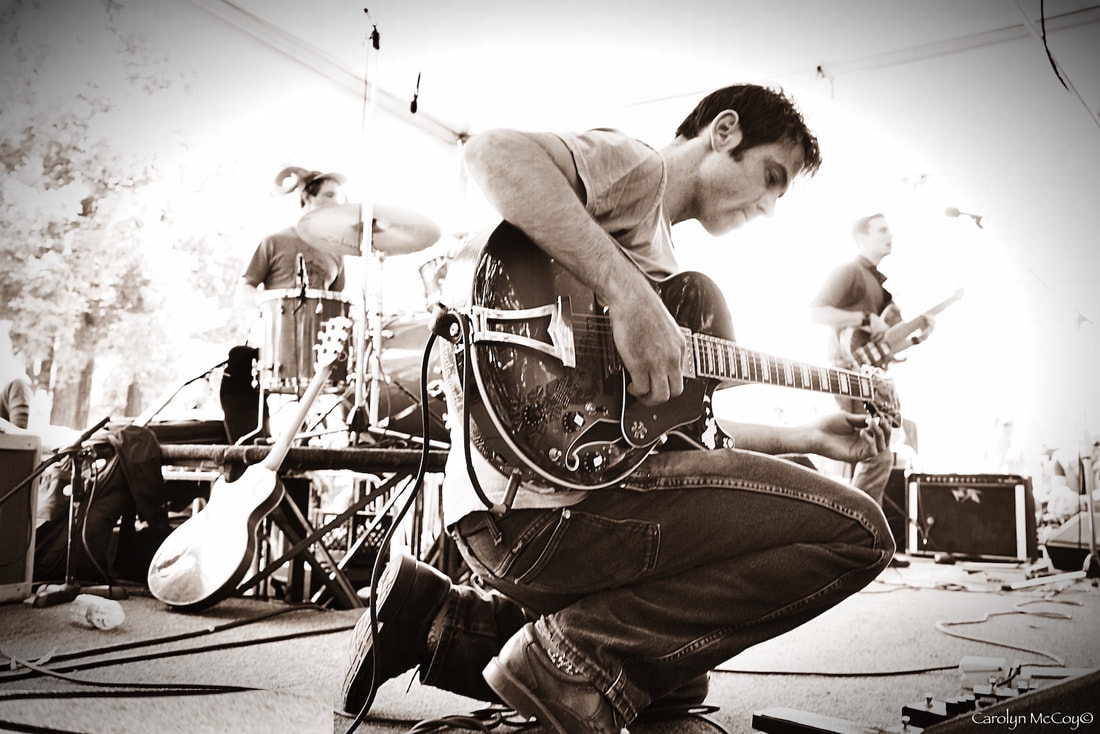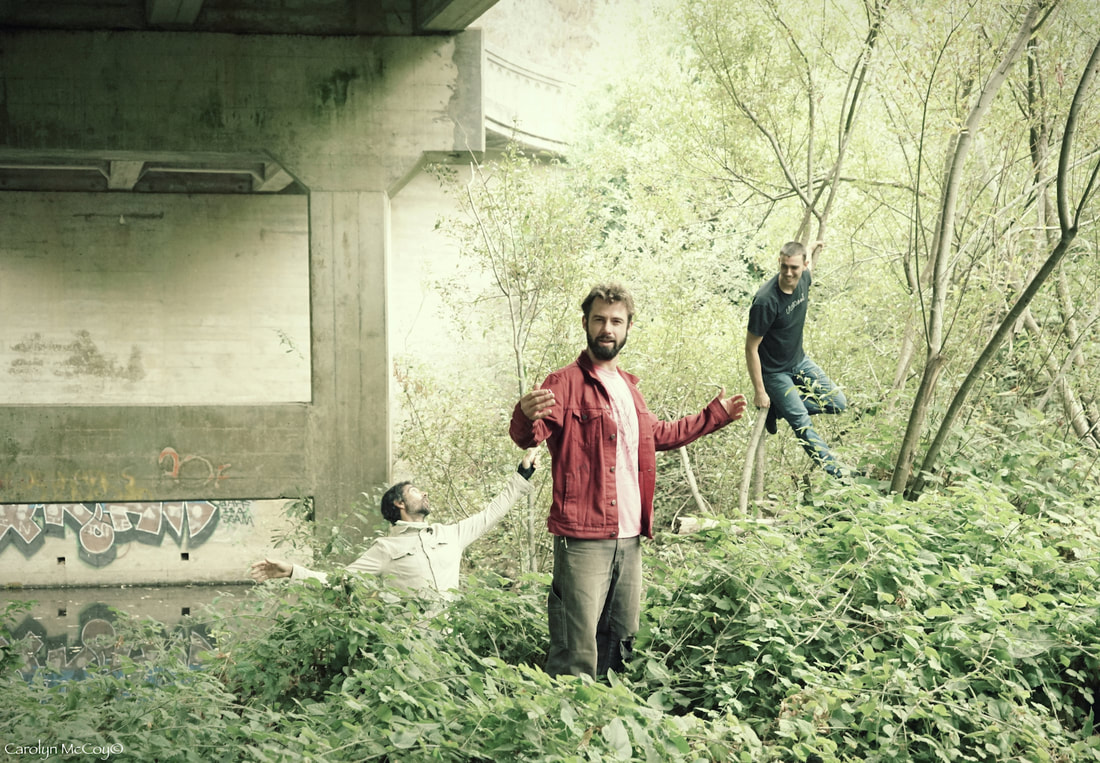The band’s songwriting process is definitely a collaborative effort. “I write all the songs, though several come about from jams, or at least evolved within them,” states Carlton-Pearson. “Michael and Brian contribute a lot in the way of arrangement, rhythmic conception, and what's perhaps the most significant thing, how much fire they cook up playing. That then permeates the whole ‘thing’; it changes the way I sing the lyrics I wrote; it gives the song more real-life meaning. {The song} has to be a living thing, and that happens because of the band.
The band traveled to New Paltz, NY, to work with Tom Deis at Pineapple Room Studio. “I've known Tom for 16 years now. We've been in bands together and worked together a fair bit, but moreover, we're just really good friends,” says Carlton-Pearson. “Tom worked so fucking hard on this record it's ridiculous. He signed up for one of the gnarliest hazings an engineer could go for, going into a 100% analog recording process from a largely digital workflow and buying several pieces of equipment specifically for Luddite. All the technical limitations we experienced just wound up being the magic on the tape at the end, which is why we chose to do the whole thing as we did.”
“I wanted to work with Tom basically because I trusted him. I trusted him musically, and I trusted him personally. He gets it. He gets that music is a spiritual entity you access through the physical world. I guess this whole recording was way more intense and vulnerable than I'd like to admit. I trusted his understanding of how to use technology to capture the spirit of things.”
When asked why the band decided on analog, “Because it sounds better,” replies Carlton-Pearson, “It just does.“





 RSS Feed
RSS Feed
